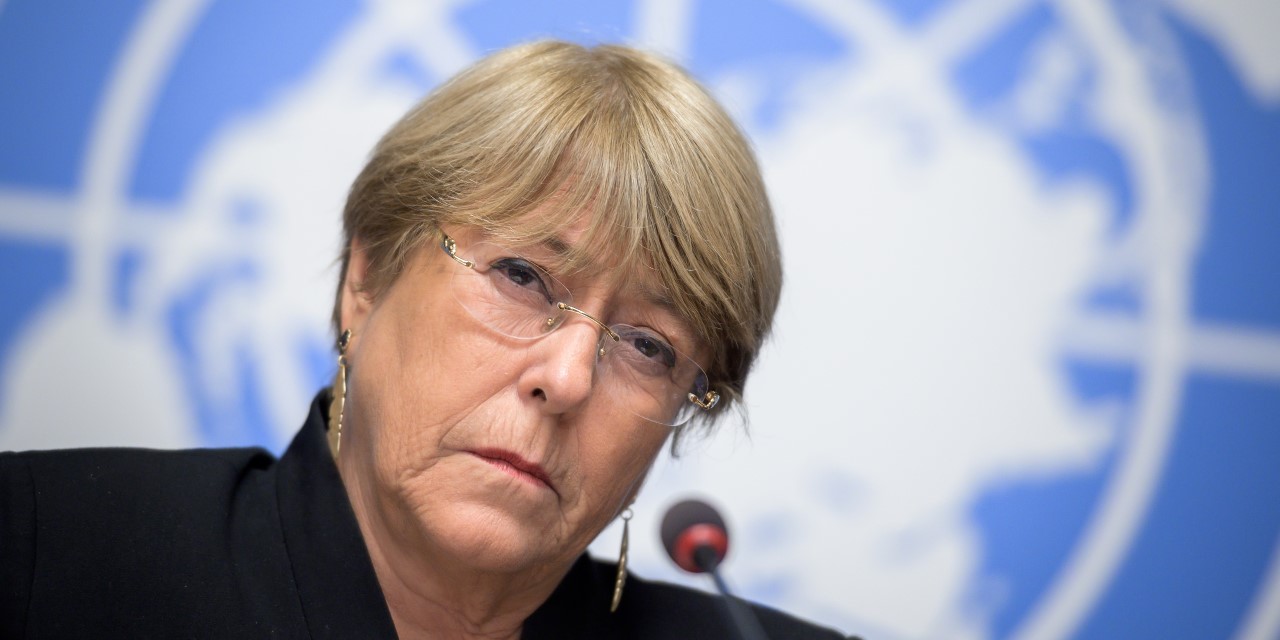UN High Commissioner for Human Rights Michelle Bachelet Jeria on Saturday called on Guinean authorities to "speed up" the organization of the trial of the perpetrators of the massacre of opponents in an attack perpetrated by the army ten years ago in a stadium in Conakry.
"For a long time now, impunity has prevailed in Guinea and prevents victims' scars from healing, and lasting peace and reconciliation will not be achieved until justice and accountability are maintained," Michelle Bachelet said in a statement. On September 28, 2009, the defense and security forces and soldiers had beaten, stabbed and shot dead opponents of the military regime, gathered in the largest stadium in Conakry to demand that the self-proclaimed president since December 2008, Moussa Dadis Camara , does not show up for the next presidential election. The instruction on the massacre has been closed since the end of 2017, but the trial date has still not been set.
"At least 156 dead and missing, including a number of women who have died as a result of violent sexual assault"
An international commission of inquiry appointed by the UN established in December 2009 that the attack "has left at least 156 dead and missing, including a number of women who have died as a result of violent sexual assault," he said. Commissioner in a statement. This report overwhelmed the authorities of the time, explaining that they changed the scene of the crime. Inmates have been tortured, at least 109 girls and women have been victims of sexual violence, and bodies have been buried in mass graves. The Commission also concluded that this massacre constitutes a "crime against humanity", and found individual criminal responsibility of several Guinean officials, including Moussa Dadis Camara.
"Public Servants Charged and Still in Office"
"Although the Commission of Inquiry has recommended the Guinean authorities for nearly ten years to prosecute those responsible and compensate the victims, little tangible progress has been made so far," said Ms. Bachelet, appealing authorities to "speed up the organization of the trial". "These long-awaited judicial procedures - if and when they will take place - should ensure accountability both for the sake of victims and strengthen the rule of law throughout the country," she said. The High Commissioner stressed that efforts to prosecute and organize a judicial procedure "have been extremely slow and have not resulted in a trial or actual convictions of those responsible".
"It is particularly worrying that a number of high-ranking indicted officials are still serving and have not yet been brought to justice," she said.
Government "determined" to hold trial
On the eve of the 10-year anniversary of the massacre, Guinea's Prime Minister, Ibrahima Kassory Fofana, said Friday night on public television that he wanted to "reassure (the victims) of the government's determination to work for the manifestation of the truth".
"All alleged perpetrators of such abuses, regardless of their political affiliation, title, rank or rank, will be held accountable in the justice of our country," he said. "This trial will be, and we are firmly committed to, an opportunity to deliver justice to the victims, to concretely address the challenge against impunity" in Guinea. The authorities will "create the material, logistical, technical and security conditions for the effective holding of this trial on the grounds of the Conakry Court of Appeals," added the Guinean head of government.

